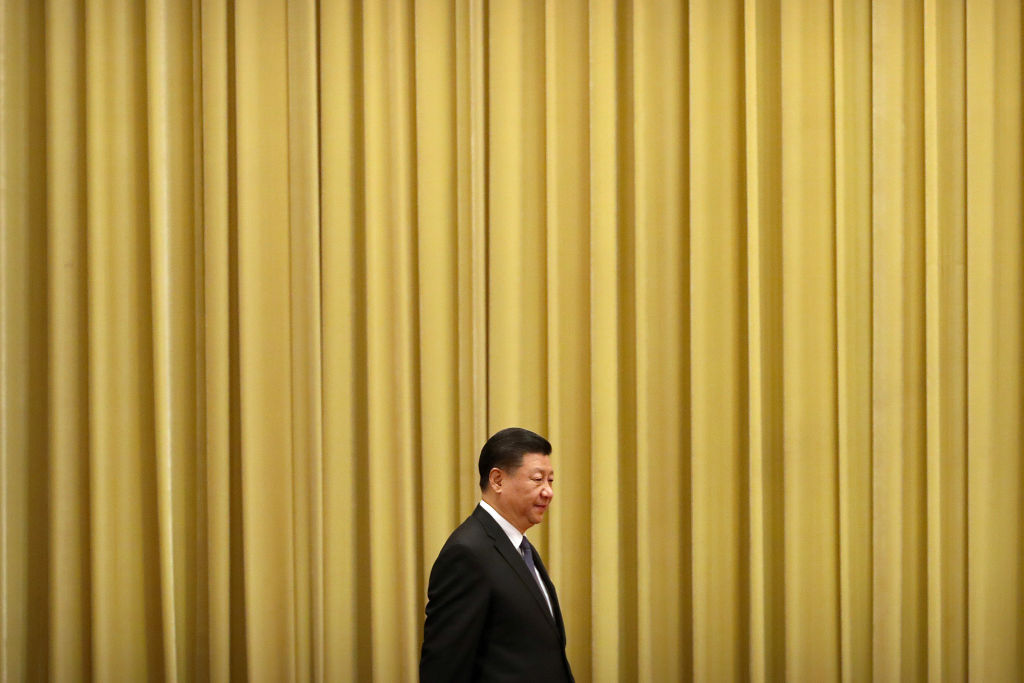
The most obvious impact of the
New York Times’ publication of excerpts from a
trove of documents outlining Beijing’s persecution and mass detention of Uyghurs and other Muslim minorities is that the Chinese leadership can no longer hide behind hollow denials about what is taking place in the Xinjiang region.
To date, Beijing has tended to either
claim that allegations of Uyghur and Muslim persecution are baseless and a ‘gross interference in China’s internal affairs and deliberate provocation’, or
defend its activities in Xinjiang as part of a ‘special campaign’ focused on ‘extremist and terrorist crimes’, and thus the equivalent of counterterrorist campaigns in other countries. Should the
New York Times’ documents prove to be genuine, they will deny Beijing any room to use either of those arguments and will stand as a thorough repudiation of China’s credibility on this issue.
They should also help persuade the 54 countries that have recently leapt to
Beijing’s defence on this issue by praising China’s ‘remarkable achievements in the field of human rights’ to rethink their support for Beijing.
As noted by the
New York Times, the documents—which run to around 400 pages and contain internal speeches by Chinese President Xi Jinping and other Chinese leaders, directives and reports on the surveillance and control of the Uyghur population in Xinjiang, and references to plans for extending restrictions on Islam to other parts of China—are significant because they categorically ‘confirm the coercive nature of the crackdown in the words and orders of the very officials who conceived and orchestrated it’.
The publication of the documents is also timely because it comes on the heels of the release of a scathing
report by 12 UN special rapporteurs focused on issues of human rights, arbitrary detention and minority rights arising from China’s 2015 Counterterrorism Law. The UN report has been
lauded by Human Rights Watch as an ‘unprecedented and devastating assessment’ of the way that China’s Counterterrorism Law has been used to ‘justify gross violations of basic rights and freedoms in Xinjiang’.
But the significance and potential impact of these documents go much further than just confirming the scale and depth of Beijing’s Xinjiang program. The
New York Times claims that the documents were provided by ‘a member of the Chinese political establishment who requested anonymity and expressed hope that their disclosure would prevent party leaders, including Mr Xi, from escaping culpability for the mass detentions’.
The emergence of a whistleblower from within the Chinese system seeking to expose the inside story on the detention program in Xinjiang is potentially explosive and undermines not only the authority of the Chinese Communist Party but also the personal credibility of Xi, whose role as the instigator of the program is confirmed by the documents.
In addition, the documents outline reservations inside the Chinese bureaucracy on the crackdown in Xinjiang and even resistance from those tasked with implementing Beijing’s program in the region. This resistance prompted a purge of local officials across Xinjiang; the CPP opened more than 12,000 investigations into party members ‘for infractions in the “fight against separatism,” more than 20 times the figure in the previous year’. These investigations resulted in thousands of officials in Xinjiang being punished for ‘resisting or failing to carry out the crackdown with sufficient zeal’.
These revelations are troubling for the Chinese leadership, given they come at a time when Beijing is facing significant pressure over Hong Kong and is being challenged internationally by the US on trade and aspects of its actions across the South Pacific.
While the
New York Times hasn’t yet confirmed that it will release more of its document trove for public scrutiny, Beijing will no doubt be concerned about other revelations about its Xinjiang program that may come to light from whistleblowers concerned about the direction of China’s leadership. For example, should definitive proof emerge from within Chinese government circles confirming that China has instituted a program of mass
organ harvesting from prisoners of conscience and detained Muslim minorities from Xinjiang, Beijing’s global prestige and credibility would be severely damaged. China could potentially also be subject to criminal sanctions for
crimes against humanity as well as for
genocide.
There’s also a more enduring lesson that can be taken from these revelations: that of the power of the whistleblower even within the most oppressive and authoritarian regimes. The existence of a whistleblower from within the Chinese government stands as an intriguing counterpoint to recent events in Washington, where a whistleblower has exposed what appears to be gross abuse of the power of the president by US President Donald Trump, and where inside accounts of Trump’s maladministration and questionable dealings with Ukraine have the potential to bring down his presidency.
And while it’s highly unlikely that the
New York Times’ revelations pose an existential threat to Beijing or to Xi, they do significantly tarnish Beijing’s growing international prestige and reveal a weakness in the Chinese system. They also show that, despite Beijing’s iron grip on information within China and its determination to dictate the narrative on all aspects of Chinese politics and society, the truth can’t always be suppressed.
But, ultimately, this remains a story about the plight of Uyghurs and other Muslims in China, and the idea that the global community can’t simply ignore the principle of collective responsibility for human rights. The leaked documents are the most definitive account to date of the horror that is unfolding in Xinjiang.
We are all now well past the point of being able to claim that we didn’t know what was occurring.
 Print This Post
Print This Post